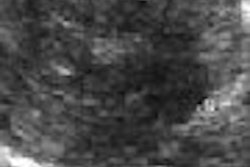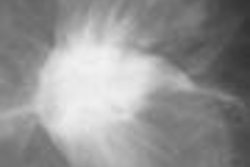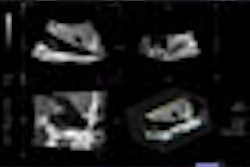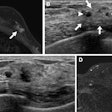Dear Women's Imaging Insider,
We've just returned from the 2007 RSNA meeting in Chicago and we can tell you that the weather was temperate, the McCormick Place wireless was temperamental, and women's imaging was hot. So without further ado, visit the Women's Imaging Digital Community for the following RSNA articles:
- The striking clinical features of triple-negative breast cancers
- The radiation exposure rates of pregnant women over the last decade
- Toxicity levels in women undergoing chemoradiation for gynecological cancer
- How FDG-PET/CT accurately detects inflammatory breast cancer
- Ruling out pulmonary embolism in pregnant women with CT angiography
You'll also want to check out the Insider Exclusive on ultrasound-based elasticity imaging, which continues to show potential as a tool for noninvasively differentiating benign from malignant breast lesions. Click here for the details.
Finally, we bring you a bit of Hollywood. A couple of weeks ago, the tabloids ran less-than-flattering photos of actress Jennifer Love Hewitt in a bikini. The images of her larger-than-usual backside were mercilessly mocked by celebrity watchers, propelling the size 2 Hewitt to retaliate on her own blog. She chastised the media for putting "young girls under more pressure over their weight ... I'm (upset) for ... all of the girls out there that are struggling with their body image" (jenniferlovehewittonline.com, December 4, 2007).
Hats off to Hewitt for taking a stand. She may be interested in two recent studies on body image issues that relied on functional MRI tests. In the first, Los Angeles-based investigators noted that brain activity differs quite dramatically in people with body dysmorphic disorders. In another study, Dr. Walter Kaye and co-authors found that even after recovery, women with eating disorders continue to experience difficulties with reward processing.



















